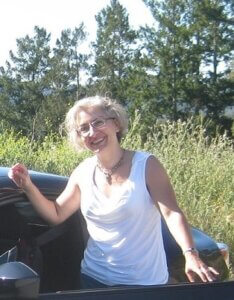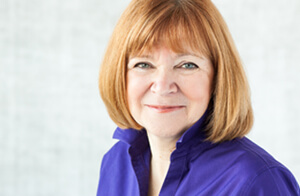Getting to Know the La Piana Team: An Interview with Jo DeBolt
This blog post is part of our series introducing the La Piana team. This week we spoke with Jo DeBolt, Partner. Jo joined the firm in 2005 and is based in Pittsburgh, Pennsylvania.
When and why did you decide to dedicate your career to the nonprofit sector?
Actually, my dad owned his own business and I grew up around the family business, so I originally thought I’d have a corporate career. I graduated with a degree in finance and went on to get my MBA thinking I’d pursue a career in business. But in the midst of interviewing with accounting firms and other corporations, I kept thinking, “I cannot picture myself getting up every day to go do this.” It didn’t feel like there was much meaning to it. So I went back and talked to some of my professors and people I knew who were already out pursuing careers. And one of my former professors said to me: “There aren’t many people with your background in the nonprofit sector, but there’s a real need for the kind of analytical skills you have. You might want to look for a job with nonprofits, or work with smaller businesses.” My alma mater had just started a small business development center, which in this case also served nonprofits because we didn’t have an MSO in Pittsburgh at the time. So that’s where I ended up going to work and really getting familiar with both nonprofits and small business.
How have your previous positions, both in and out of the nonprofit sector, shaped your approach to consulting?
I had already come to nonprofit work in that kind of capacity-building role, then moved into starting and leading a nonprofit, and went back to the private sector for a short time working in a family business — then back to nonprofit work, but in a totally different field from before. So my career took this really windy path that gave me lots of different types of experiences in different fields, and even in different sectors. And I think it taught me a lot about business models and what does or doesn’t make them work. I learned about leading and managing organizations of different sizes and types. I was involved in a number of startups, and building an organization like that gives you a lot of knowledge about how you have to organize things in order for them to work well. I think all those experiences contributed to my point of view as a consultant.
Is there a particular consulting project that you are most proud of?
Maybe this goes back to the kind of career path I’ve had, but I’m not drawn to projects in a specific field, or even of a particular type. It’s all interesting for different reasons. That said, I’m really proud of the work that Scott [Cotenoff] and I did in Baltimore. Taking two very different systems and helping them come together was enjoyable work and good work. I feel that we helped them get to a pretty good place. And I think that’s true of a lot of our merger work. It’s helping people take an idea they may be a little nervous and uncertain about and providing both the process and content that gives them the confidence that it can work. It’s generally fun work to do, and at the end there’s a tangible outcome, a point at which there’s a definite accomplishment. I also like working with foundations that are taking things to the next level because the potential is so great; you know it’s going to have a broader impact in their field, community, or part of the world.
What would you say is the biggest trend impacting the social sector today?
I think there are profound changes going on for human services organizations because of policy and funding shifts at the federal and state level. There’s a tremendous amount of rethinking of sustainable business models and what that means. One expression of that is what’s happening to national nonprofits with chapters or affiliates. Their networks are experiencing these business model challenges and having to think their role, the services they’re delivering, and how to be sustainable — and that in turn has an impact on the role the national organizations can play. I see those organizations grappling with how to keep together networks that are under a lot of stress.
 It all goes back to shifts in funding and policy, and these shifts come changes in how society thinks about philanthropy and the nonprofit sector. Just look at the National Human Services Assembly’s reframing project, which has shown that the language we’ve been using for a very long time to talk about human services — language like “safety net” and “lifeline” — isn’t being heard the way it was heard 30 years ago. So one dilemma is how to talk about shared values in a society that’s increasingly splintered, and what we do as a society to help those that most need our support.
It all goes back to shifts in funding and policy, and these shifts come changes in how society thinks about philanthropy and the nonprofit sector. Just look at the National Human Services Assembly’s reframing project, which has shown that the language we’ve been using for a very long time to talk about human services — language like “safety net” and “lifeline” — isn’t being heard the way it was heard 30 years ago. So one dilemma is how to talk about shared values in a society that’s increasingly splintered, and what we do as a society to help those that most need our support.
Is there a particular book or movie that has recently made an impact on you?
I’m one of those people that really enjoys a movie while I’m watching it, and I’ll see it on TV years later and not realize until halfway through that I’ve seen it before. But I am a TV series watcher. And I have to say I’m sad at how quickly all five seasons of The Wire went by for me because I thought it was just an incredible show. I’m equally sad to see Boardwalk Empire wrapping up. My daughter and I have just started binge-watching past seasons of Mad Men and getting ready for its last season. I think with all these shows, it’s the characters that are shaped by their place and time that really appeal to me.


Comment section